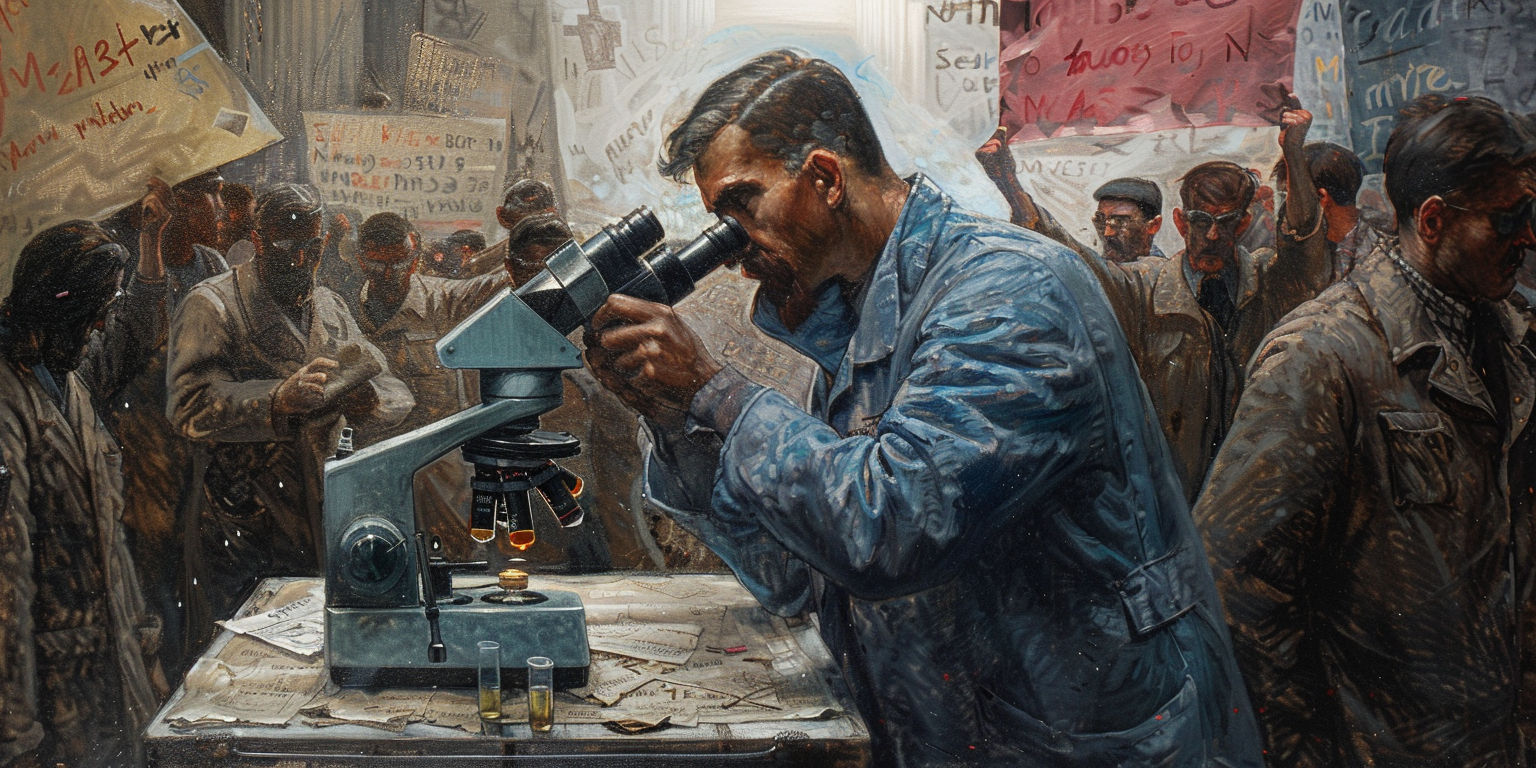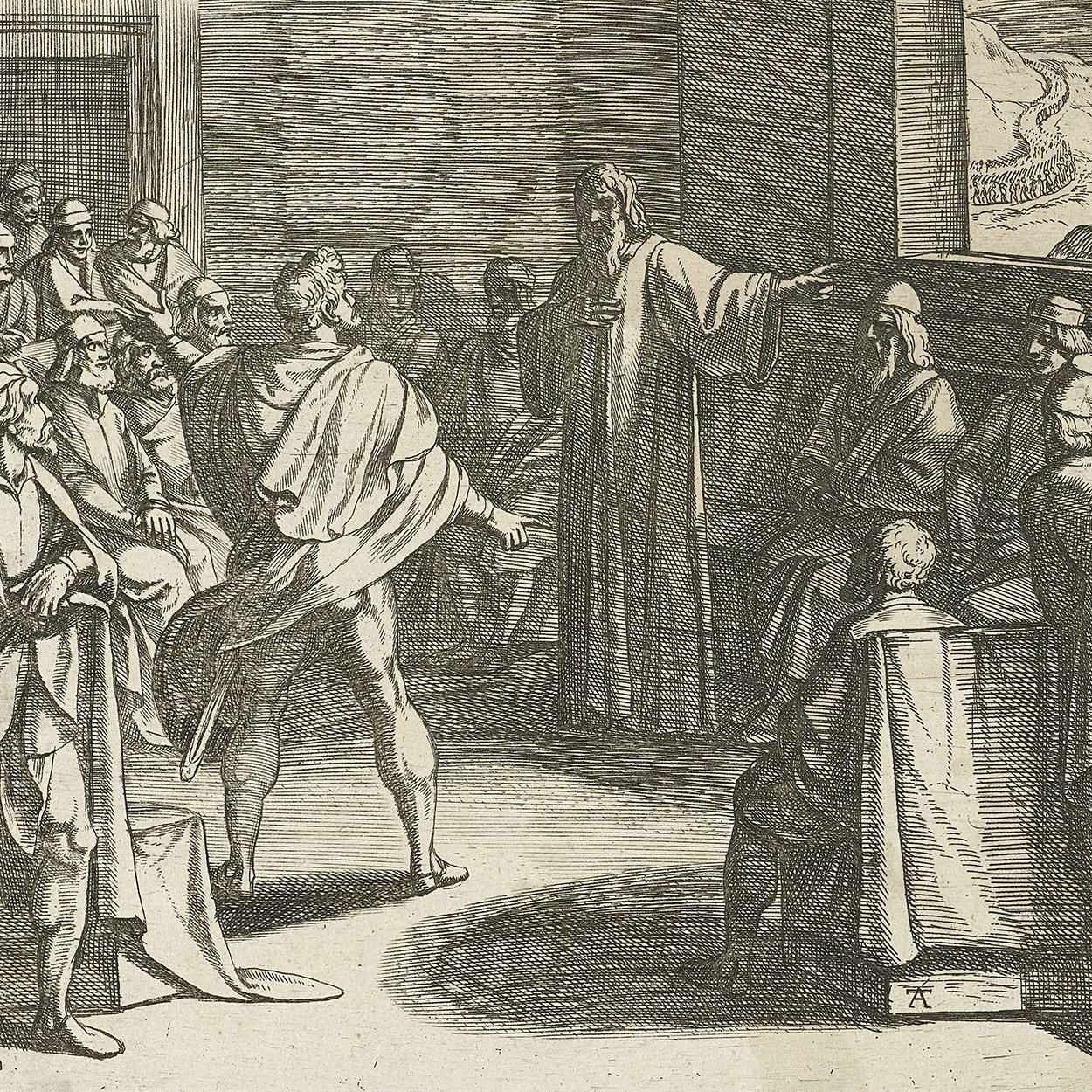Louis Armstrong himself once said, “Music is life itself.”
Medical science suggests that in some ways, Armstrong may be right. The work of Audiologist Michele Clements, for example, has shown that different kinds of music produce different heartbeats and kicking patterns in unborn children. And the effects appear to persist outside the womb as well.
Studies have linked our music choices to everything from illness to how we spend; from cooperation to what we can literally see. It’s perhaps no surprise then that music plays a role in some of humanity’s most spiritually significant rituals. And yet, when it comes to efforts that seek to curb corrosive forms of music, there’s often a reluctance to acknowledge just how potent a force music can be in our lives.
Such concerns, of course, are not new. In Plato’s Republic, the noted Greek philosopher seems to imply that the properly ordered state would, of necessity, moderate music and poetry for the youth: “Gracelessness and evil rhythm and disharmony are akin to evil speaking and the evil temper.” For the state to lift its citizenry toward virtue, music and art must be oriented toward the good in Plato’s mind.
Meanwhile, the great Russian novelist Leo Tolstoy similarly gave voice to the need to mindfully regulate the music we consume. He wrote in The Kreutzer Sonata: “In China music is under the control of the State, and that is the way it ought to be. Is it admissible that the first comer should hypnotize one or more persons, and then do with them as he likes? And especially that the hypnotizer should be the first immoral individual who happens to come along? [Music is] a frightful power in the hands of any one, no matter whom.”
Few today would say that music should be a matter for the state to control. But while many would be quick to dismiss any concerns about music as finger-wagging (“Oh, they used to complain about my Beatles records, too!”), it’s not just the Beatles we’re talking about anymore. And given the intensity and pervasiveness of music today, it’s worth considering the manner in which individuals, families, and culture can better self-censor and encourage higher, loftier forms of song and composition.
The Church of Jesus Christ of Latter-day Saints publishes its For the Strength of Youth guidelines aimed to young people. From as far back as 1965, the booklet has included the instruction to “always review” music. Today, an updated version reads: “Do not attend, view, or participate in anything that is vulgar, immoral, violent, or pornographic in any way. Do not participate in anything that presents immorality or violence as acceptable. Have the courage to walk out of a movie, change your music, or turn off a computer, television, or mobile device if what you see or hear drives away the Spirit.”
Without question, listeners bear the primary responsibility for the music they consume. But, as the music industry and digital media now provide listeners with much of the music available to purchase, download, or stream, it’s not unreasonable to believe they should also bear some responsibility for the songs youth and adults encounter.
Let’s speak plainly: after decades of growing sexualization generally in our culture, we continue to witness an even greater increase in hyper-sexualized content quickly accessible even to young people. Have these trends had any measurable effects?
Some 78% of college students today report “hooking up.” And while casual sexual encounters have remained stable or gone down over the last thirty years, those encounters are increasingly with friends and barely-met strangers, and less and less with a spouse. Not only do more than 7 in 10 people regret their hookup, but one cannot help but wonder whether hookups may also be contributing to increasingly severe and widespread mental distress within pockets of the rising generation.
“Music can be used to exalt and inspire or to carry messages of degradation and destruction.”
If music has set the stage for any of this, can a different kind of music also help change this? If music seems to influence shopping habits, perhaps it can help shape the kind of culture we aspire to curate. A study published in the journal Sexuality & Culture analyzed the songs from the Billboard top 100 for forty-eight years starting in the 1960s.
The trend over time can be pretty well summed up in the shift from the Beatles’ “I want to hold your hand” to Akon’s “I want to *expletive* you.” The report points out that over the time frame, male pop performers became especially more sexually explicit, referencing sex in 40% of pop songs in the 2000s.
Counterintuitively, but perhaps to hammer home the point, songs about romantic relationships dropped during the same period. At the Latter-day Saint Publishing & Media Association (LDSPMA) Conference in 2018, David Archuleta spoke about his experience recording the music video for his single “Something ‘Bout Love” for his follow up album after his American Idol success. While he wanted to cultivate a sweet innocent brand in-line with his first single “Crush,” the music video producers ignored his wishes and provided costumes and a set that Archuleta described as “sexualized.”
When he tried to push back, he was met with high-pressure guilting tactics from the producers. And while he eventually got his way, Archuleta describes it as being a major factor in his breakup with his record label.
As if to invoke Tolstoy, one Latter-day Saint religious leader said, “Music is one of the most forceful instruments for governing the mind and the spirit of man.” And yet another delivered a similar message: “Music can be used to exalt and inspire or to carry messages of degradation and destruction.”
Unlike Archuleta, many good, well-intentioned music artists nevertheless have accepted the idea that in order to sell their music or to gain popularity, their music has to contain violence, profanity, or pornography. Sadly, this idea has infected even some “Christian” music artists who have often decided to relax their moral standards in the well-worn Faustian bargain for fame or fortune.
Music is the universal language. During the darkest nights, in times of adversity and distress, music can soothe the aching soul and bring the calmness and peace that a person yearns for. During moments of quietness and reflection, music speaks to our souls, and at times brings to remembrance things of life that may have long since been forgotten. Music expresses our jubilation, praise, and thanksgiving to God from whom all blessings flow. Do we live up to the lofty Latter-day Saint article of faith, which declares, “If there is anything virtuous, lovely, or of good report or praiseworthy, we seek after these things.”
Knowing the immense power of music, why would we seek for anything less?
















